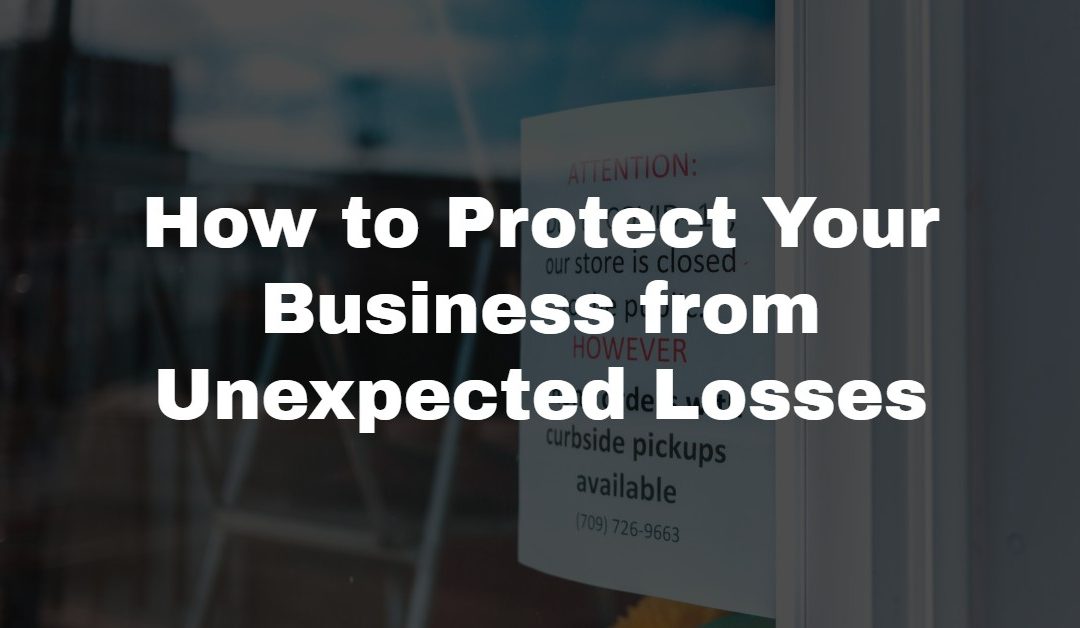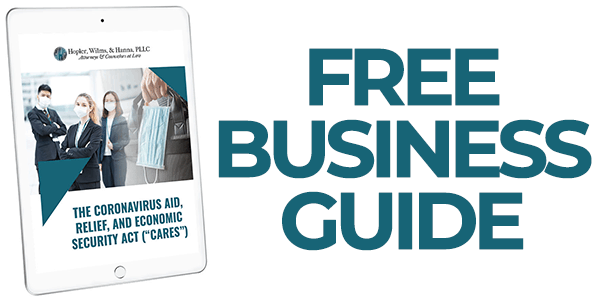The outbreak of COVID-19 is a good reminder no one is immune to the effects of certain types of disasters. If you are a business owner, you likely have many people such as employees, family and your customers relying on you. While it is impossible to know when a catastrophe will strike, you can take steps to protect your business from unexpected losses in the future.
Starting and maintaining a business can be incredibly difficult, time-consuming, and stressful. Various types of insurance serve as a safeguard for your business, which means you can focus on growing your business. The type of business insurance typically depends on the nature of your company, although there are certain policies that provide coverage for the needs of most small businesses. Below we look into what business owners should consider when choosing an insurance policy.
Location and Natural Disasters
Consider the physical location of your business and the risks that it could cause. Are you located near a flood zone? What natural disasters are common in your region? Evaluate regularly on whether anything has changed in regards to your risk factors.
Would a long-term construction site affect your routine business activities? Does your business rely on third parties for equipment or labor? Are your products shipped, and if so, how? Consider how you can be protected from a worst-case scenario and don’t make the mistake of thinking, “that would never happen to me.”
A business owner can control a lot of things, like the product, their employees and marketing. Acts of God (or natural disasters) cannot be controlled and the damages caused may be out of your hands, but the right insurance will help your business get back on its feet.
Most large companies have the resources to deal with the aftermath of a disaster. Small businesses are generally impacted much harder, and many cannot survive the fallout. Protect your company by understanding your vulnerabilities and having the right insurance coverage in place.
Liability
Does your business manufacture or sell a high-risk product, such as tobacco or alcohol? What type of labor is involved on the part of your employees? Are you in an industry that is considered dangerous, such as zip-lining or horse-back riding?
Consider how much a one-time mistake could potentially impact your customers or employees. Construction and mining are just some examples of industries that have a high number of fatalities and injuries. Accidents can and will happen, but a responsible business owner will implement strategies to mitigate the damage.
General liability and public liability insurance are two different forms of liability insurance. General liability typically includes public liability insurance as well as product liability insurance, making it ideal for many small-business owners. It includes coverage ranging from damage caused by your product to medical costs for third parties injured on your premises.
If property is damaged by a person outside your company, you can be covered. General liability insurance encompasses the needs of many businesses and can prove invaluable due to the wide range of situations for which it provides coverage. When choosing an insurance policy, be sure to check the specific details of scenarios covered and review your policy on a routine basis to ensure it still fits your needs.
Property
A company’s property or inventory varies greatly depending on the primary business activity. Obviously, a tow truck company and a bakery do not have much overlap when it comes to equipment and tools, so focus your concern on what physical property keep your business going.
If your inventory is damaged or broken, would you be able to continue work? Is your equipment is used off site on a routine basis? A company that heavily relies on a certain machinery or tools to function should protect those assets by making sure they are properly insured. If your business involves employees driving during the course of work, commercial auto insurance can help cover the costs resulting from an auto accident if the driver is found at fault.
The right property insurance can help protect the property your business owns as well as rented property, such as your worksite, furniture, equipment and inventory. It can provide coverage for loss of valuable papers and records and account receivable. Make sure that your coverage is broad enough to cover many scenarios, both common and uncommon.
Commercial liability insurance is sometimes synonymous with general liability insurance. It, however, can also refer to three types of insurance coverage for businesses: (1) property insurance which covers damage to your work site or company property, (2) workers compensation which will pay for employee’s medical expenses if injured at work, and (3) public liability insurance.
Disruption/Interruption Insurance
The current state of our world is a good reminder of the importance of interruption insurance. In January of 2020, a global pandemic was unfathomable. Even huge corporations were not prepared for fallout caused by COVID-19.
Businesses had to be creative, especially those considered non-essential. Unfortunately, many people lost their jobs; some businesses were unable to continue in any capacity and others completely folded. When essential functions are interrupted for any reason, you should have coverage to help deal with the fallout. Even if you have coverage, what happens when you are able to return to work? Business interruption insurance can cover loss of income and help your company recover and move forward.
Employer Liability
If an employee is injured during the course of work, workers compensation would likely pay for medical costs and lost wages. That being said, it’s not uncommon for an injured employee to feel that the coverage provided by workers comp is not adequate and they could sue for additional damages not covered.
For example, if your employee is injured by falling off a ladder during the course of work and breaks their leg, then their medical expenses and lost wages would likely be covered by workers compensation. They could still sue you if the ladder did not meet proper safety codes. A lawsuit is an expensive and lengthy process. The costs of a lawsuit will likely be covered with employer liability insurance.
Professional Liability
This type of insurance is essential if business involves giving professional advice, recommendations or training. If you recommend a certain type water heater which turns out to be a fire hazard, you could be sued.
If a personal trainer pushes a client to keep going and they pass out from dehydration and hit their head, you could find yourself faced with a lawsuit. Some types of professionals are required to have a certain amount of professional liability insurance. If your clients are making choices based on your advice, this professional liability insurance is a necessity.
Professional liability insurance (sometimes known as errors and omissions insurance or E&O) helps to protect businesses involved with professional-advice related services from bearing the full costs of defending claims of negligence made by a client. When choosing a policy, be sure to understand what is and is not covered to avoid unhappy surprises in the future.
Find the Right Insurance Agent
The right insurance agent will assess your business and provide insight on common risks, such as lawsuits, employee injury, damage to equipment and theft. An experienced agent will also help you understand risks totally unique to you and your business. Most independent agents may also be small-business owners, which means they may be better equipped to understand your needs.
Protect your business from unexpected claims and damage, both physical and intangible by implementing good business practice, including broad insurance coverage. Proper business insurance can rescue your company during hard times and help save money in the long-run, and it will be appreciated by you and your employees in the long-run. Shield your business from unforeseen loss or damage by incorporating protective measures before disaster strikes.


